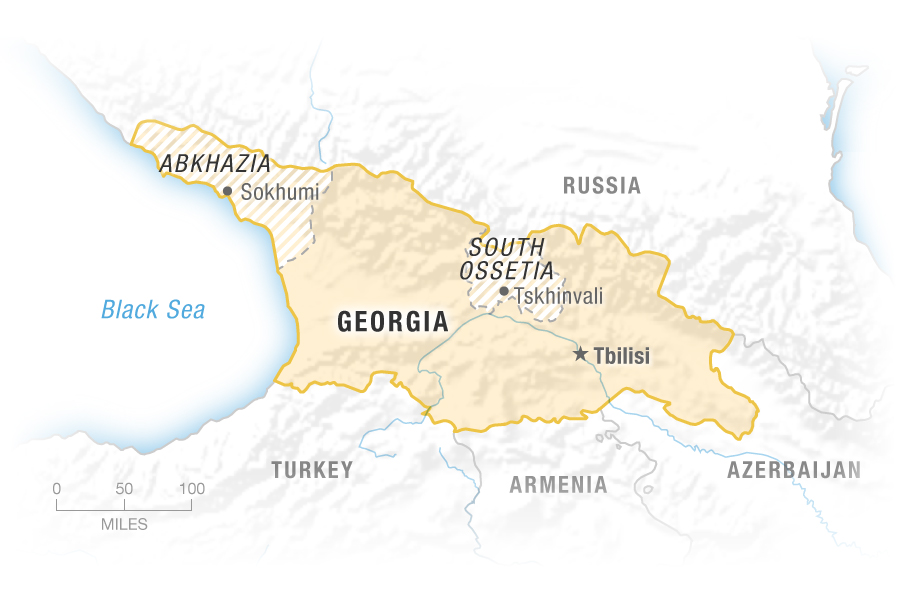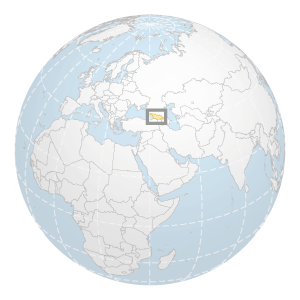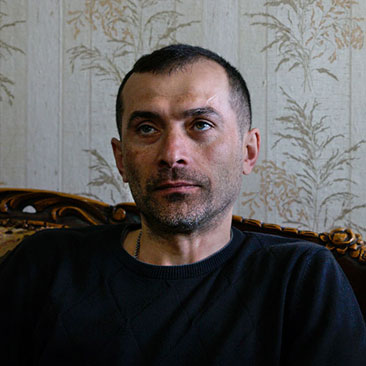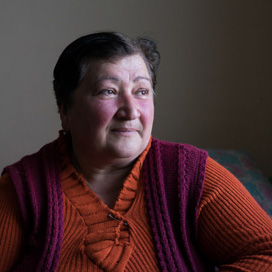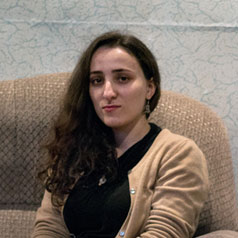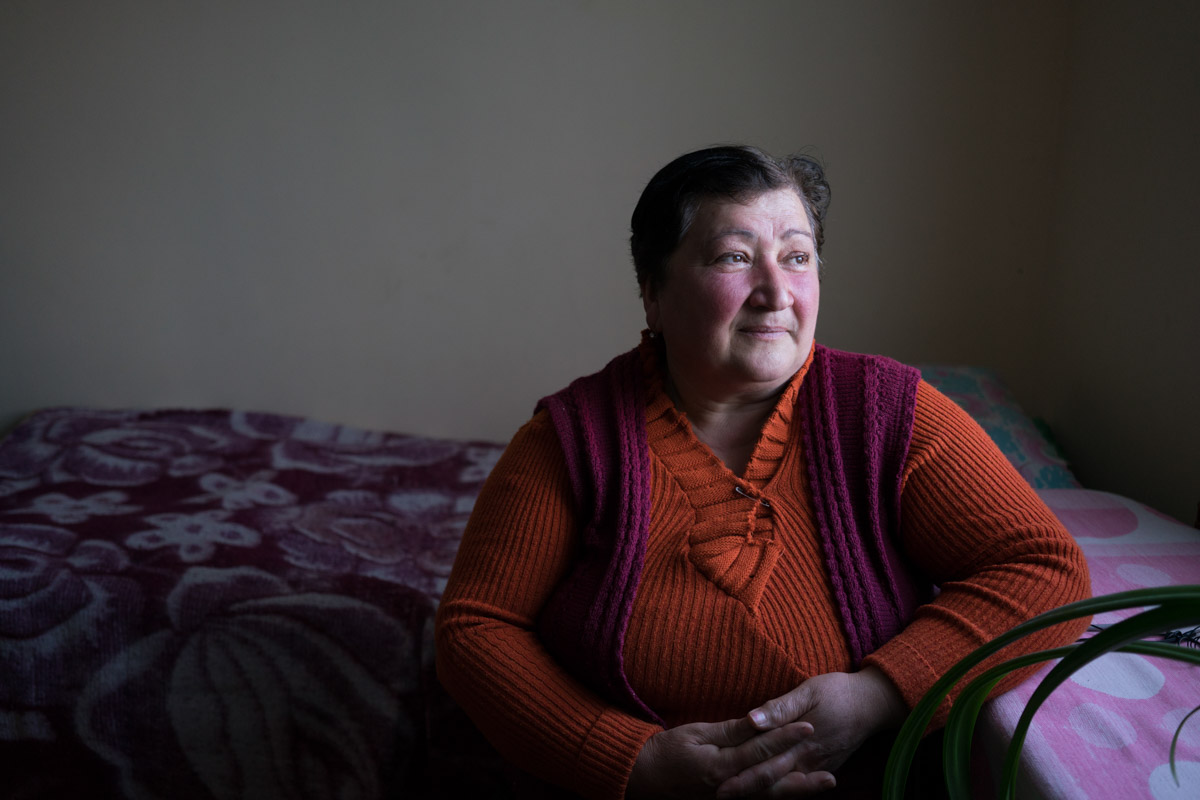Hotel Kartli, as Salakaia’s current home is called — even though it hasn’t been a hotel for many decades — houses roughly 300 families uprooted by war more than two decades ago.
In 1992, in the chaotic aftermath of the collapse of the Soviet Union, the western region of Abkhazia, a 3,000-square-mile chunk of land along the Black Sea, declared independence from Georgia. Over the next 13 months, battles raged between Georgian and Russian-backed Abkhaz forces, devastating the resort region. Some 300,000 ethnic Georgians, including Salakaia and his family, were forced out of their homes.
Kartli sits on the edges of a man-made reservoir, a 20-minute taxi ride from the bustle of downtown Tbilisi, but feels much farther away. In Tbilisi’s city center, commuters jostle their way onto the metro and young people crowd into smoky cafes serving artisanal teas.
Plaza, downtown Tbilisi, Georgia
At Kartli, cows bed down in makeshift pens inside the stripped concrete shell of what was once an outbuilding, and people maintain small plots of land for subsistence farming. On cold days, the smell of wood smoke lingers in the air, emanating from rogue stovepipes jutting from the walls of the eight-story building — one of many modifications over the years. Graffiti in Georgian on Kartli’s crumbling facade reads, “I Love Sokhumi”— the capital of Abkhazia, just 260 miles west, where Salakaia and most of his neighbors lived before the war.
At 16, Irakli Salakaia fled with his mother and sister over mountains when fighting reached their hometown, Sokhumi, in the breakaway region of Abkhazia. Eventually, they settled in Georgia's capital, Tbilisi.
Today, Salakaia lives in two rooms with his wife, two daughters and his mother. He works in construction — when there’s work — and his wife, Nana Bigvava, a cheerful 33-year-old with dimpled cheeks, works at a factory that manufactures sausage. They’ve been married since 1998 and met in Kartli, where they both ended up after the war.
(Top) Salakaia; his wife, Nana Bigvava; and their two daughters, Lizzie and Salome, share meals around a squat table in the one common space of the family's apartment. (Bottom left) Salome and Lizzie hang out in the kitchen with their mom, cooking borscht. (Bottom right) Salakaia's mother, Nunu Dzidzvava, looks for him through the window of the apartment she shares with the family.
Back in Sokhumi, before the war, Salakaia’s mother had been a biology teacher and his father managed a chicken factory. Salakaia was 16 and had just finished high school when war broke out. When Abkhaz forces took control of the city on Sept. 27, 1993, the choice was clear: flee or die.
Salakaia’s father refused to leave, insisting on staying where his other son — Salakaia’s brother, who had died young of an illness — was buried. But Salakaia, his mother and his sister joined thousands of others streaming out of the city toward the snowy Caucasus Mountains — the only available escape route.
“We had only what we were wearing, and strong hearts,” he says.
Many people fleeing over the mountains didn’t survive the journey. But Salakaia and his family eventually made it to Zugdidi, a city inside Georgian-controlled territory. From there, they boarded a Ukrainian military helicopter providing humanitarian evacuations and landed in Tbilisi, where they found shelter with two dozen other people in the two-bedroom apartment of a distant relative. By the time they finally made it to Kartli, they had been on the move for six months.

